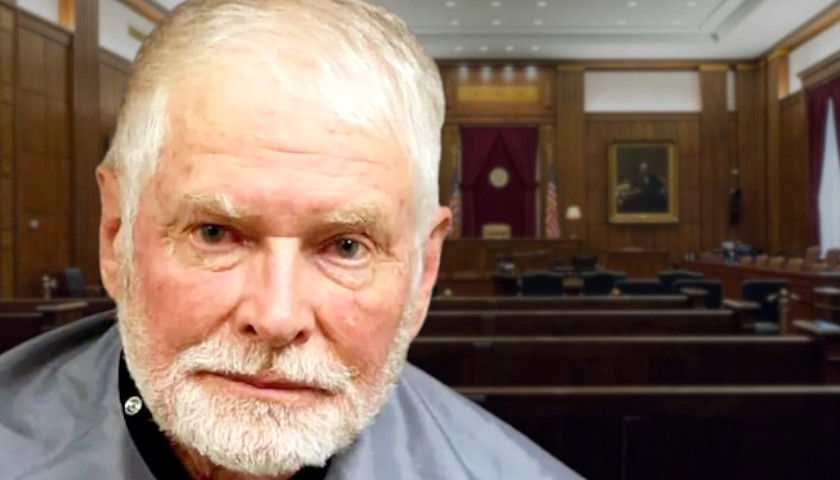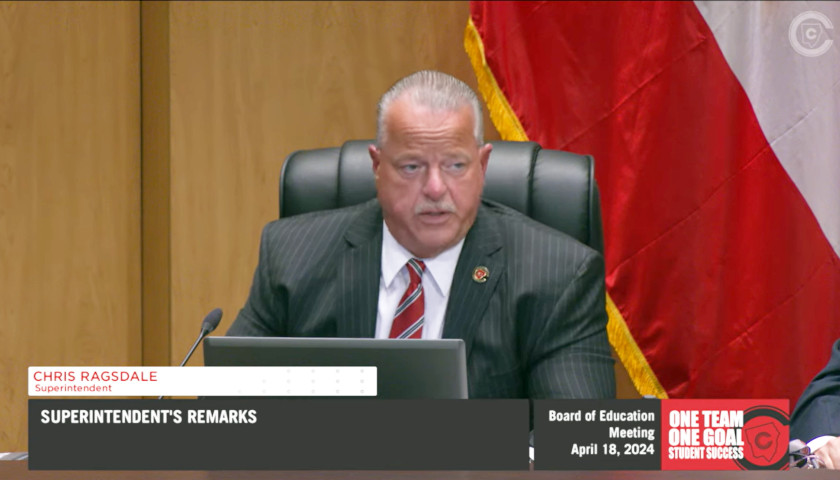The Tennessee House has approved legislation creating a three-year residency requirement for federal candidates in primaries. The final vote was 86 to 0 to approve HB2764, as 6 members voted “present” on the legislation.
The companion bill, SB2616, had already passed the Tennessee Senate.
The Tennessee Star previously reported that the House bill sponsor, State Representative Dave Wright (R-Knoxville), stated his plans to make the bills match by motioning to substitute and conform the House version to the Senate version. The lawmakers approved the motion to conform to the Senate version with one caveat.
The House of Representatives passed an amendment to the legislation that would mandate the law take effect after the November 9, 2022 election, proposing a different timeline than the original Senate version. The versions are currently still in conflict.
Sources tell The Star that there was a procedural error made in motioning to substitute and conform the bill to the Senate-passed version. Rep. Wright intended to make the House bill completely conform to the Senate version, but there was a procedural hiccup.
The next step is that the House-passed version will likely go to the Senate for consideration on Wednesday. Sources have already told The Star that the Senate will not vote to concur with the House version. Then the bill would go back to the House where they are expected to vote on the Senate version using the language that Rep. Wright intended to conform to. That is expected to pass and sources tell The Star that this is the most likely outcome. It will become effective immediately if signed by Governor Lee.
If the two chambers agree that the legislation should take effect immediately, TN-5’s GOP primary will see the most impact of the new legislation. Carpetbaggers Morgan Ortagus and David Vitalli would be immediately ineligible to run. California native Robby Starbuck would likely be ineligible as well.
This proposed law would have the likely effect of discouraging carpetbaggers from running for federal office in Tennessee. If a carpetbagger wanted to run, sources estimate to The Star that they’d need to budget $250,000 at minimum in their campaign budgets for legal challenges.
This legislation could also be challenged in court, however. Many constitutional attorneys would argue that the proposed residency law would be found unconstitutional if challenged in federal court Their main argument is they predict that the courts would simply point to the precedent of the Arkansas term limits case, which was decided 5-4 with justices Scalia and Thomas dissenting.
State Senator Frank Niceley has consistently pointed out that in his dissent on that case, Scalia said, “Nothing in the Constitution deprives the people of each state of the power to prescribe eligibility requirements for the candidates who seek to represent them in Congress. The Constitution is simply silent on this question. And where the Constitution is silent, it raises no bar to action by the people in other states.”
If the GOP state executive committee were to find a candidate ineligible for other reasons, a legal challenge to the pending residency legislation would likely be moot and the carpetbagger candidate would be eliminated from consideration.
In the event a carpetbagger candidate is allowed on the GOP primary ballot by the party but thrown out by the new residency state law, they would have two legal options: to challenge in either state court or federal court. A challenge in state court would be based on challenging the determination of residency by state. At issue in federal court would be the aforementioned constitutionality of the state law establishing residency requirements to run for federal office.
It is currently unknown if any candidate or potential candidate for a federal primary is preparing to challenge this issue in court.
– – –
Aaron Gulbransen is a reporter at The Tennessee Star and The Star News Network. Email tips to [email protected]. Follow Aaron on GETTR. Cooper Moran contributed to this report.
Photo “Tennessee Capitol” by Tennessee General Assembly.








